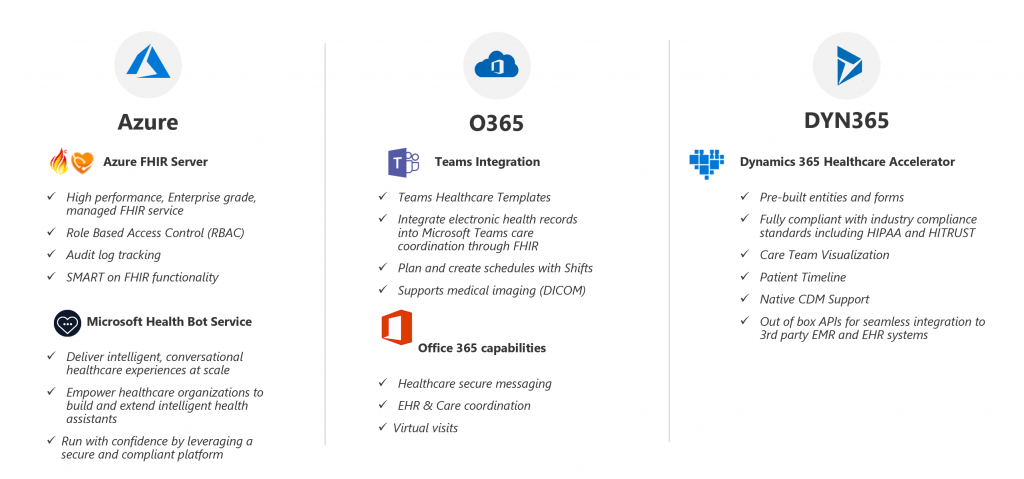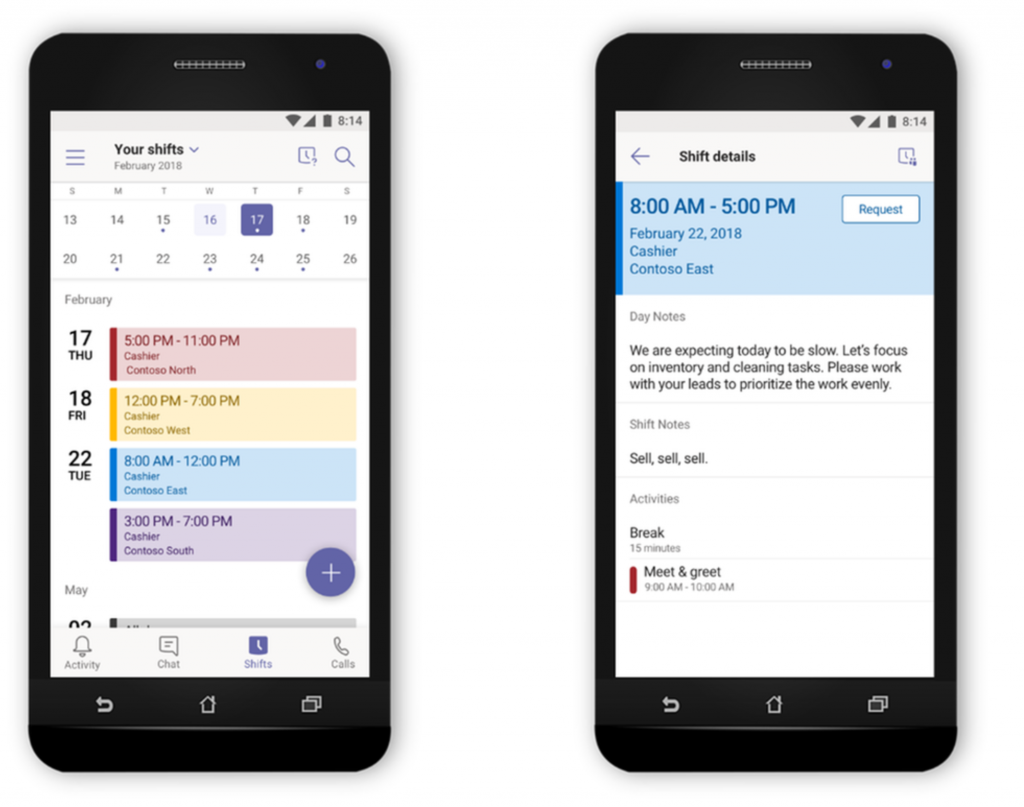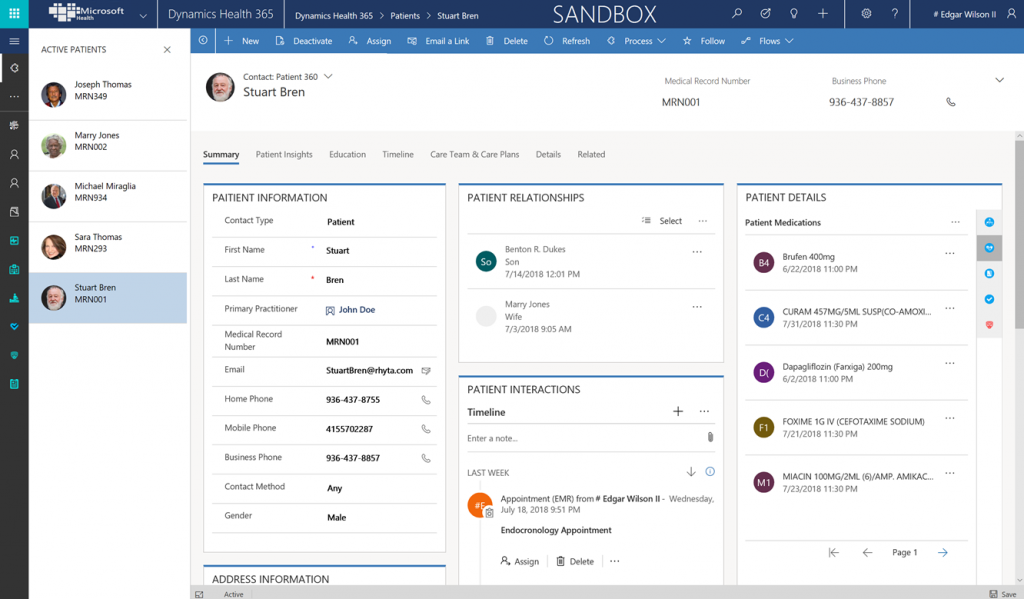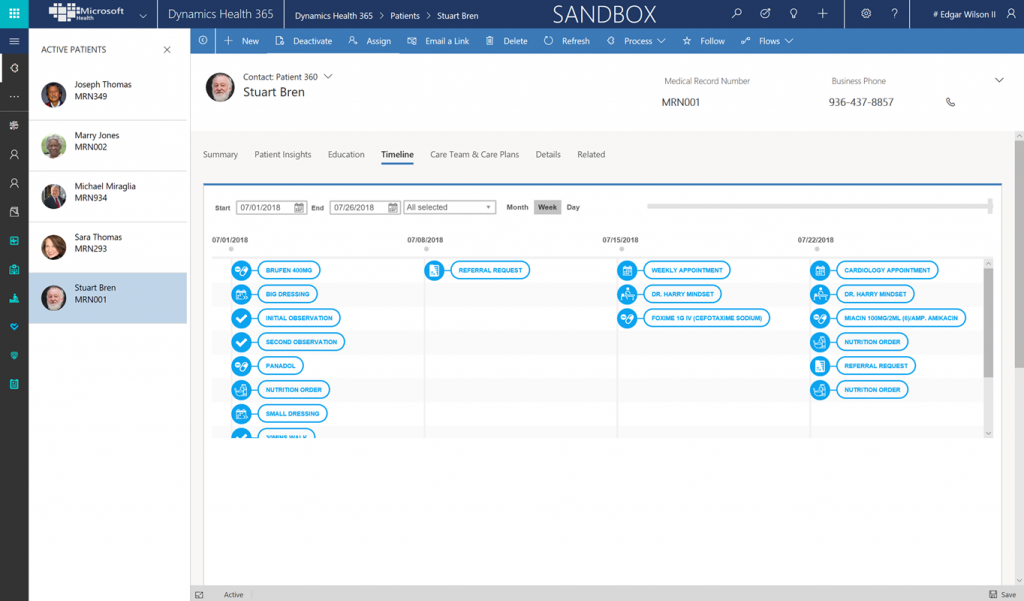It has been almost one year and a half since I joined Microsoft as a Cloud Solution Architect in the Healthcare Industry. And I must admit, it is one of the most amazing things that I have done in my life. Working on a daily base with amazing colleagues, impressive partners and progressive customers, empowers me to achieve more every day.
The healthcare industry is going through a tremendous digital transformation and to enable this transformation, Microsoft is committing itself to healthcare by infusing Healthcare services into the three clouds.
In the last months, Microsoft has been releasing new services and products to support healthcare customers and partners in this transformation.
Because the speed of innovation can somethimes be overwhelming, I created an overview of the latest new services and products through the different clouds

The thread that links all these new services and products is Healthcare interoperability. Interoperability is an overlapping set of technical and policy challenges, from data access, to common data models to information exchange to workflow integration – and these challenges often pose a barrier to healthcare innovation. Microsoft has been engaged for many years on developing best practices for interoperability across industries.
The Azure API for FHIR offers exchange of data via a FHIR API and a managed Platform as a Service (PaaS) offering in Azure, designed for management and persistence of PHI data in the native FHIR format. The FHIR API and data store enables you to securely connect and interact with any system that utilizes FHIR APIs, and Microsoft takes on the operations, maintenance, updates and compliance requirements in the PaaS offering, so you can free up your own operational and development resources.
The Microsoft Health Bot Service is another fine piece of software, that enables customers to create Bot solutions, in a secure, scalable and compliant way. It is the swiss knife for (health) bots. The Health Bot has a vast list of features such as GDPR support, scenario writer, translations, sentiment analysis, hand over to live agents , … and not to forget, FHIR support to enable interoperability between different systems

Bringing conversational AI to healthcare
Next to these Azure Services, Microsoft also expands the capabilities of Office 365 with different healthcare features.
One of these new features is the release of the Healthcare Templates, which allows customers to create Microsoft Team projects and channels in an automated way via the Microsoft Graph API.
Another announcement was the release of Shifts. With Shifts you can manage your schedule in Teams, managers can easily plan and create shift schedules, and team members can review schedules and make shift requests from their mobile devices.

Create and distribute schedules to your team. And for team members, easily review your schedule, and day or shift notes, directly from your mobile device.
Microsoft Teams also supports FHIR, which allows integration of electronic health records that enables care coordination and collaboration.
There is also support for medical imaging such as DICOM and features to only view the images without ever storing this locally.
Remote care is also possible, this can be done via video conference.
Microsoft is also infusing Healthcare features into Dynamic 365, by providing the Healthcare Accelerator for Dynamics 365.
Customers can now create use cases and workflows, using a FHIR-based data model. This solution includes, pre-built entities and forms, care team visualization, patient timelines, compliance, and much more.

A patient overview that includes relationships, interactions and details.

Presentation of clinical information about a patient in chronological order enabling providers to visualize all patient interactions and make informed care decisions
These services and products are only a tip of the iceberg on where Microsoft is driving digital transformation throughout the Healthcare industry.
Other topics such as Blockchain, Confidential Computing, Clinical Research, Augmented Reality, Virtual Reality, and Artificial Intelligence is something we are working on a daily base. To ultimately empower every person and every organization on the planet to achieve more.
More information can be found via following links
- https://cloudblogs.microsoft.com/industry-blog/health/2018/11/12/fhir-server-for-azure-an-open-source-project-for-cloud-based-health-solutions/
- https://azure.microsoft.com/en-us/blog/lighting-up-healthcare-data-with-fhir-announcing-the-azure-api-for-fhir/
- https://cloudblogs.microsoft.com/industry-blog/health/2018/08/13/microsoft-amazon-google-and-ibm-issue-joint-statement-for-healthcare-interoperability/
- https://www.microsoft.com/en-us/research/project/health-bot/
- https://techcommunity.microsoft.com/t5/Microsoft-Teams-Blog/Empower-your-Firstline-Workers-with-new-capabilities-in/ba-p/312171
- https://appsource.microsoft.com/en-us/product/dynamics-365/msemr.healthcarecommondatamodel?tab=Overview
- https://techcommunity.microsoft.com/t5/Microsoft-Teams-Blog/Integrate-electronic-health-records-into-Microsoft-Teams-care/ba-p/334042

